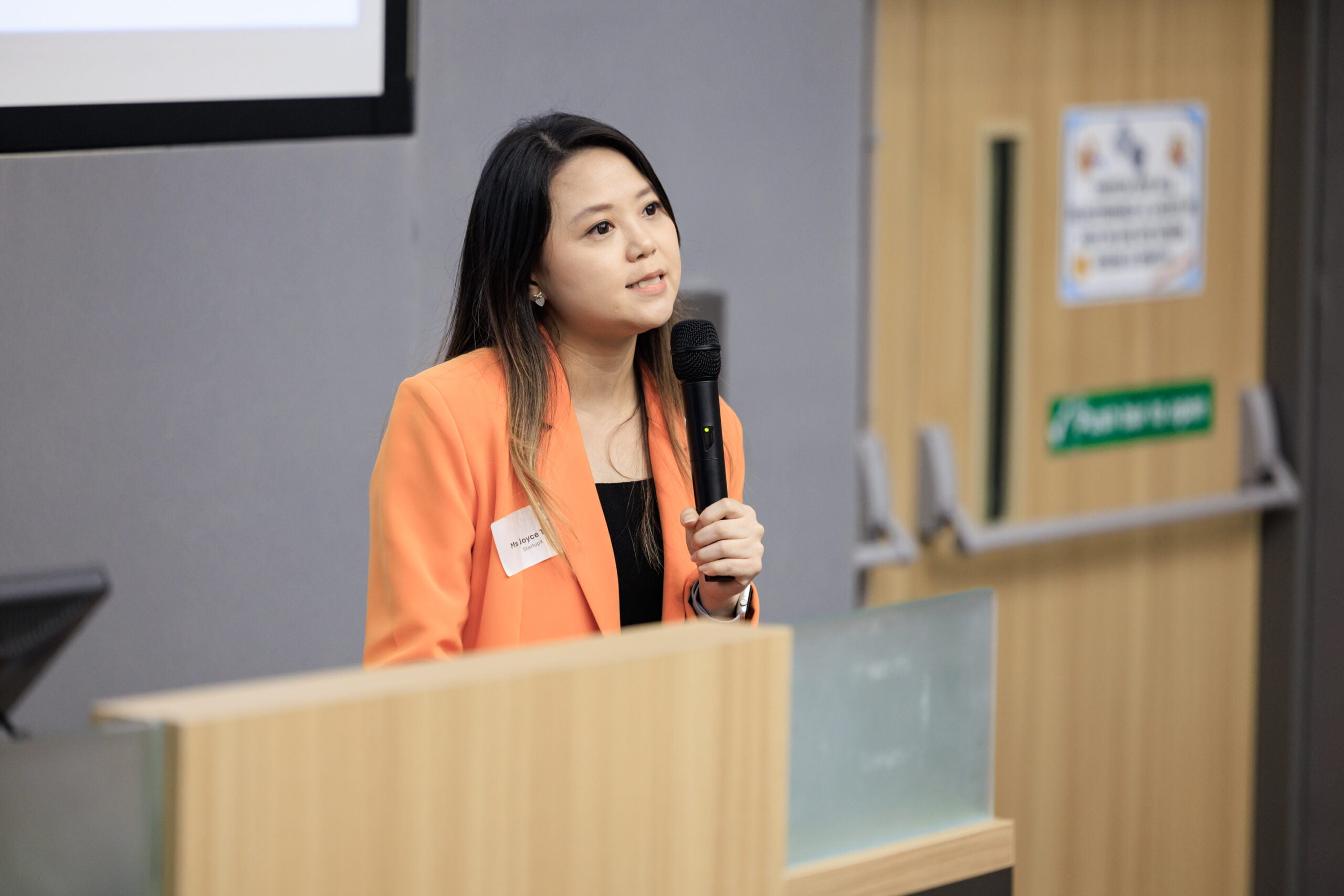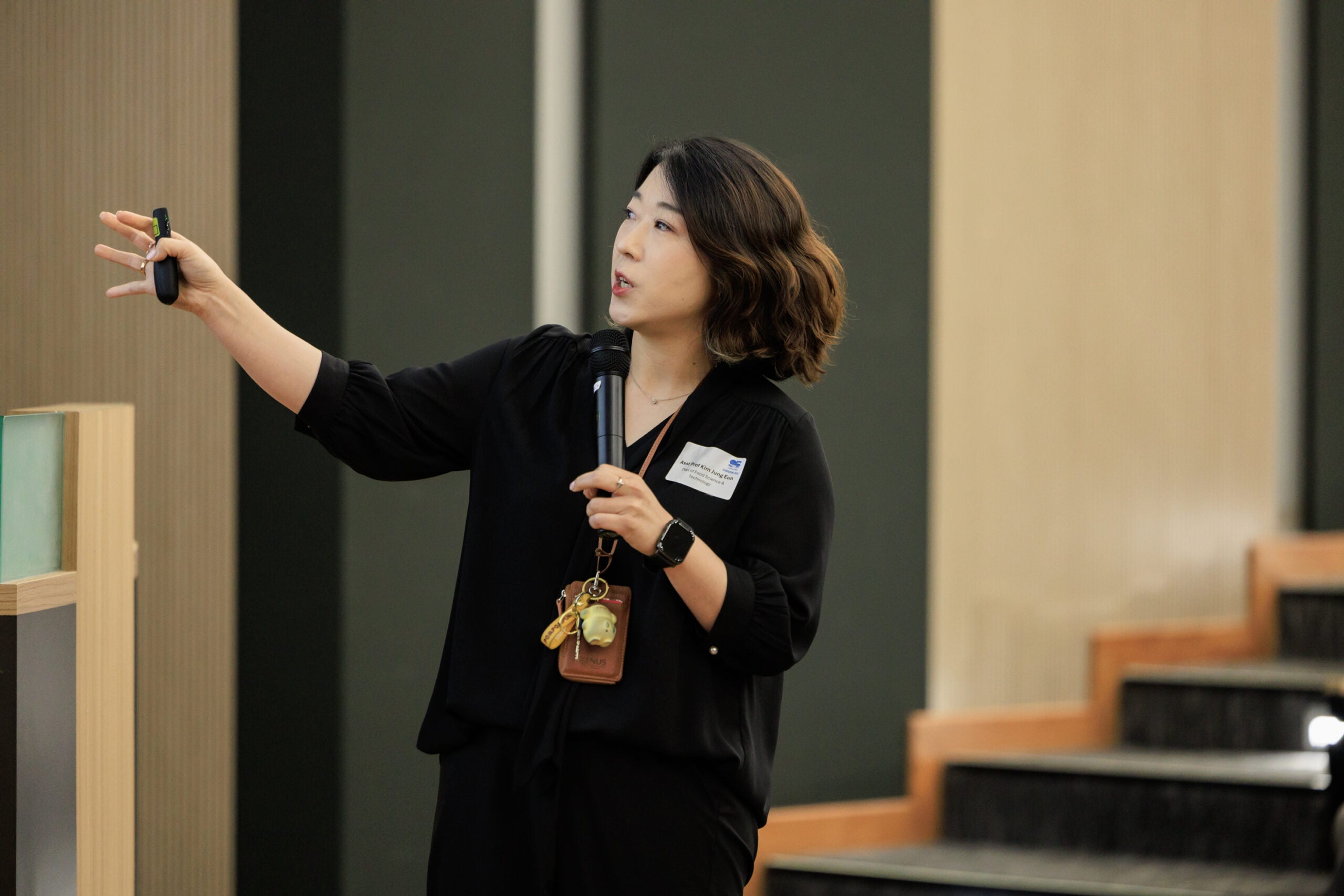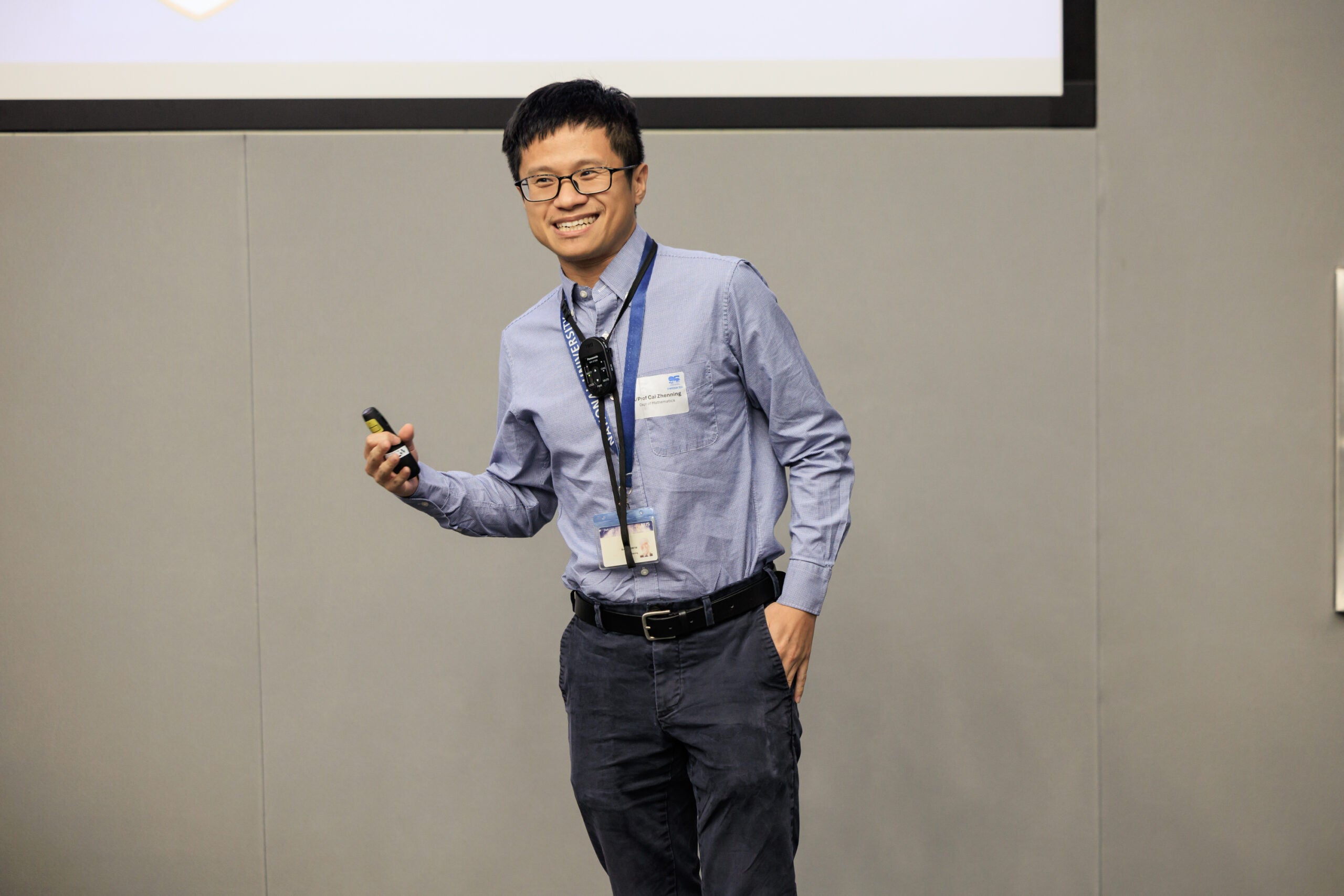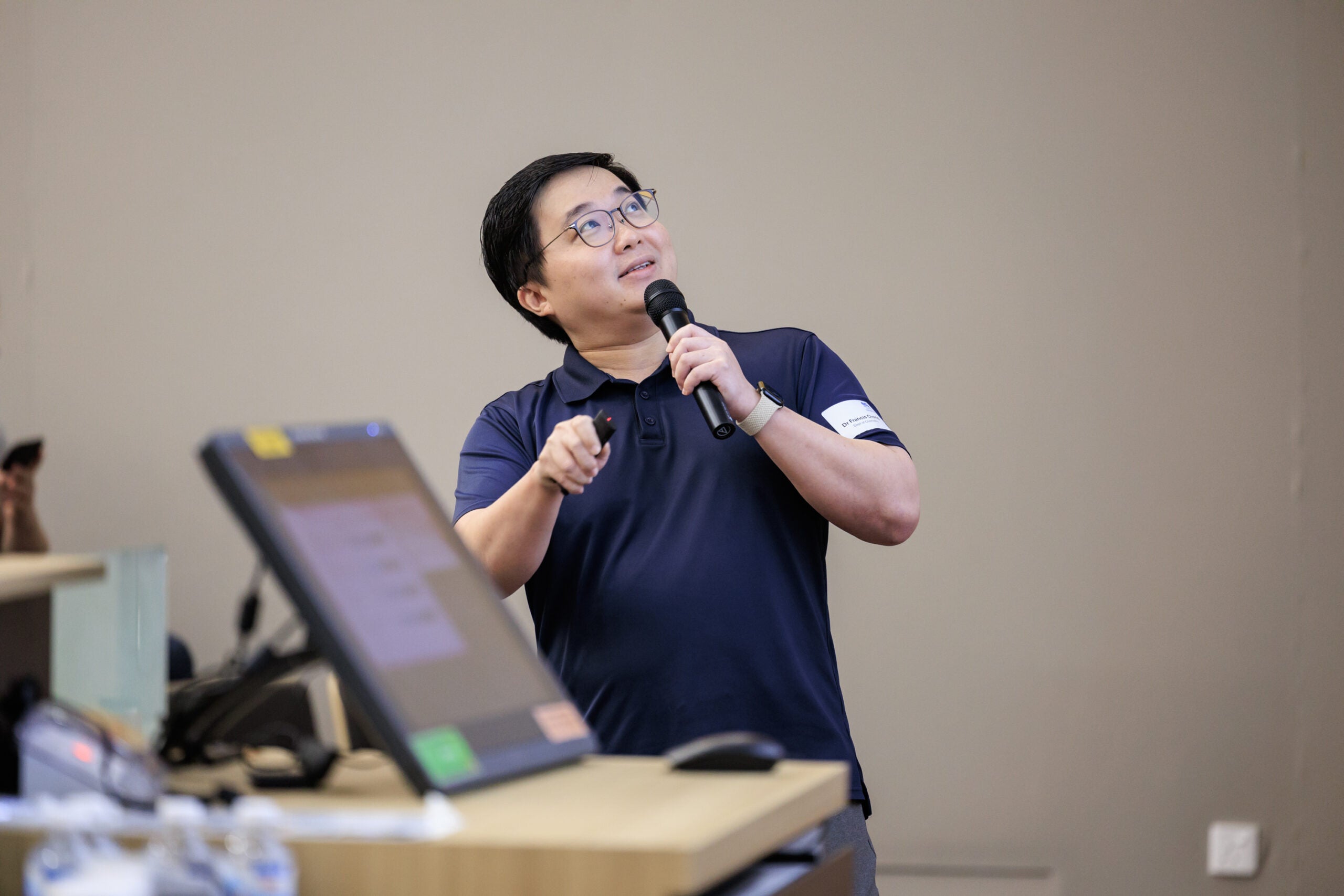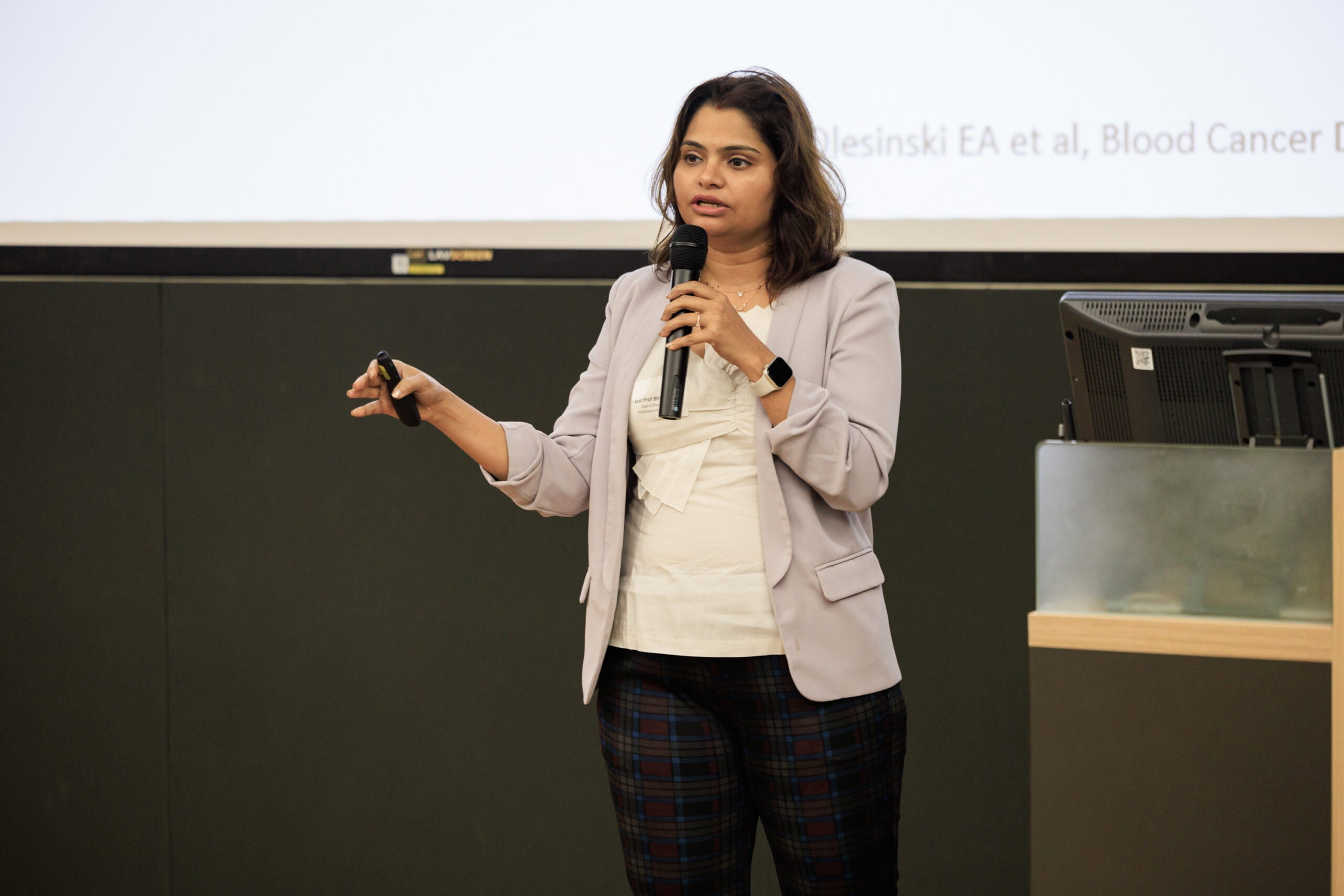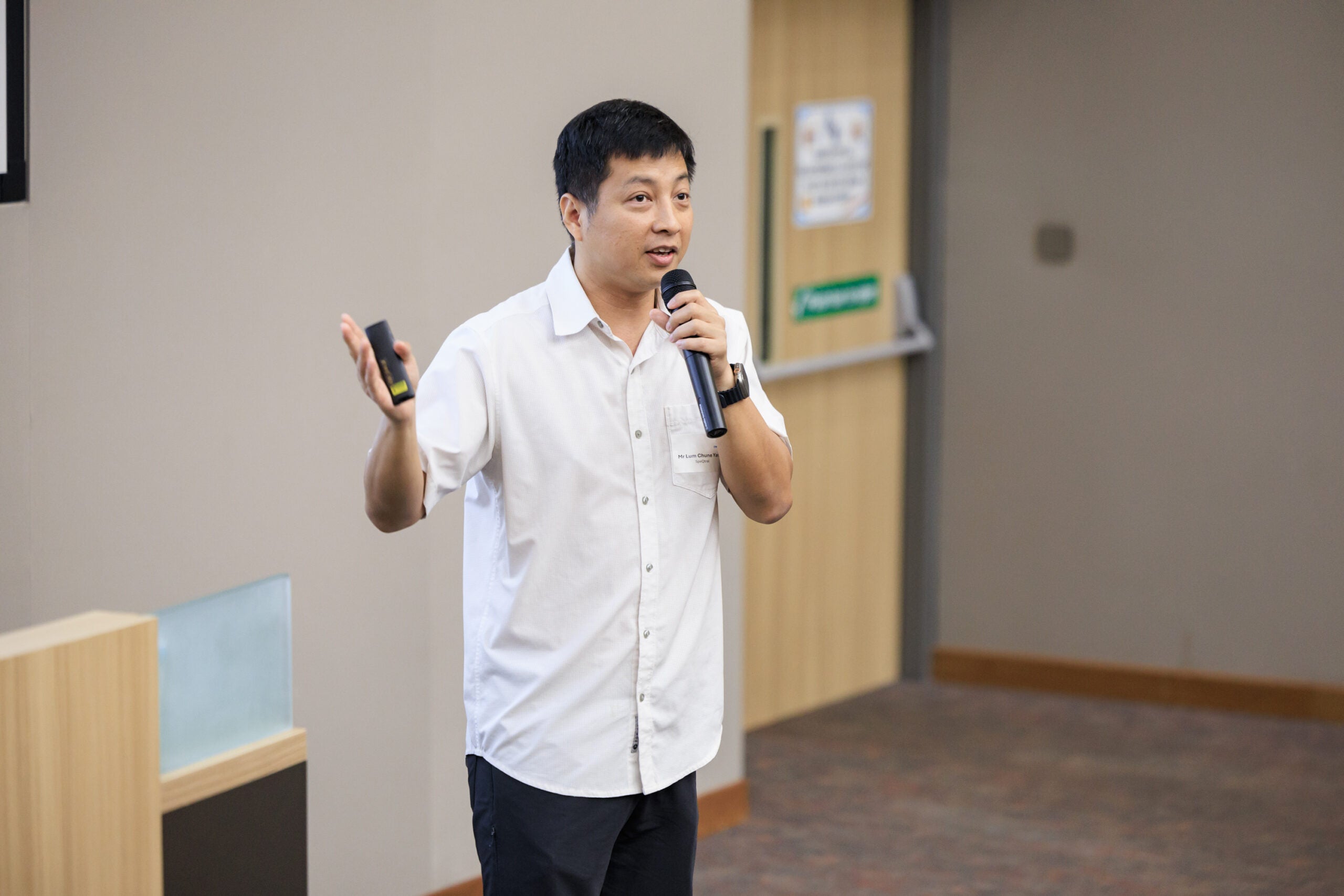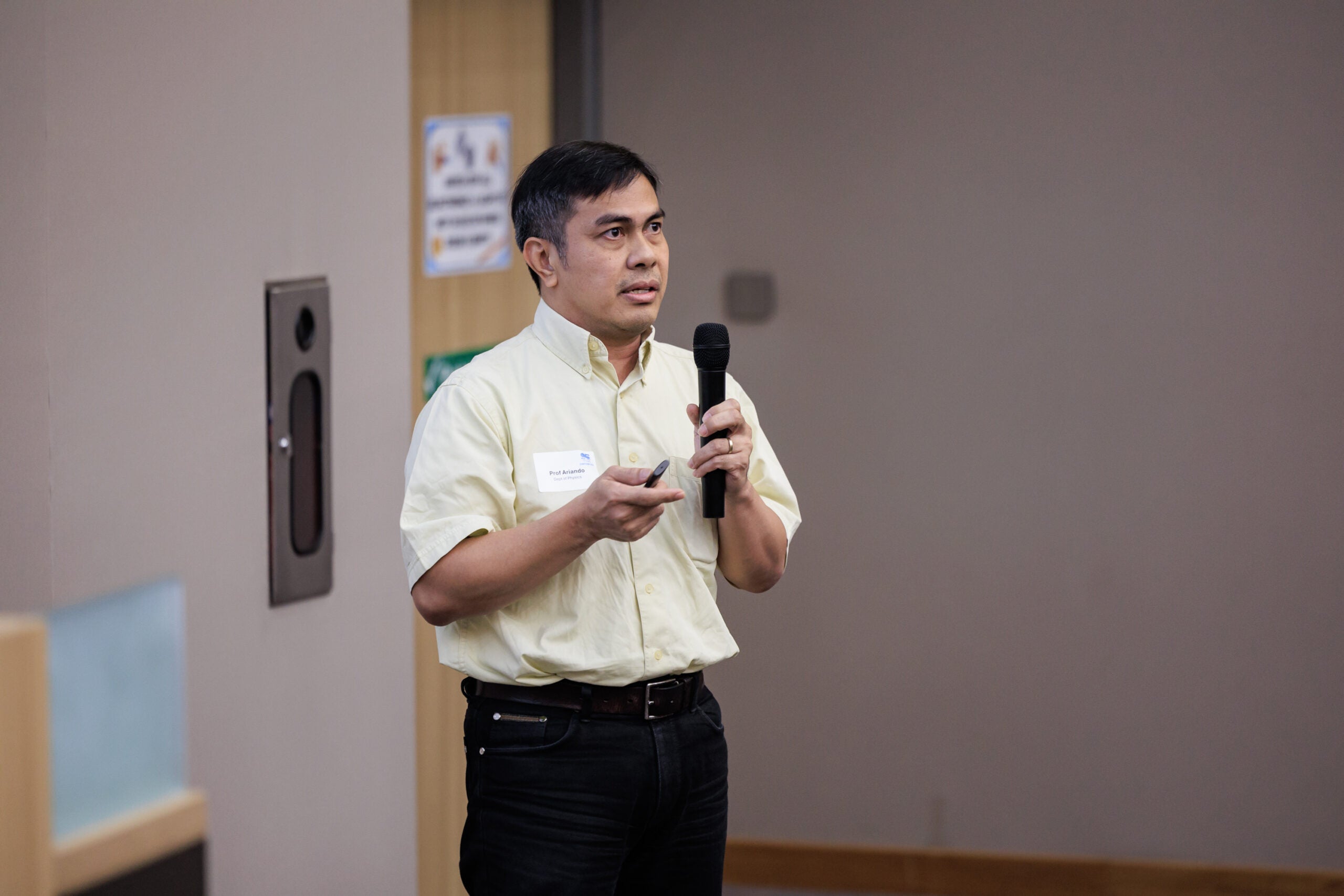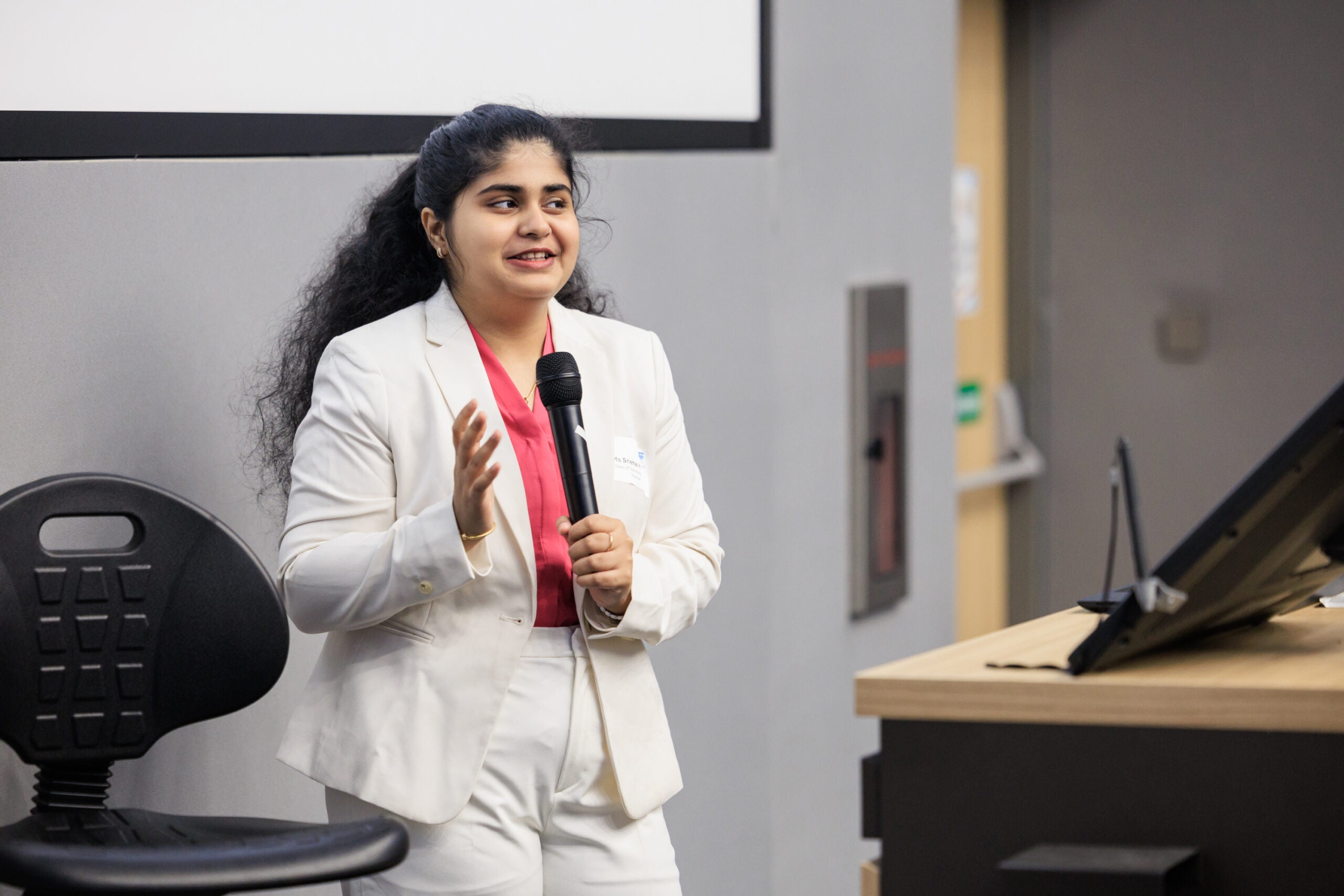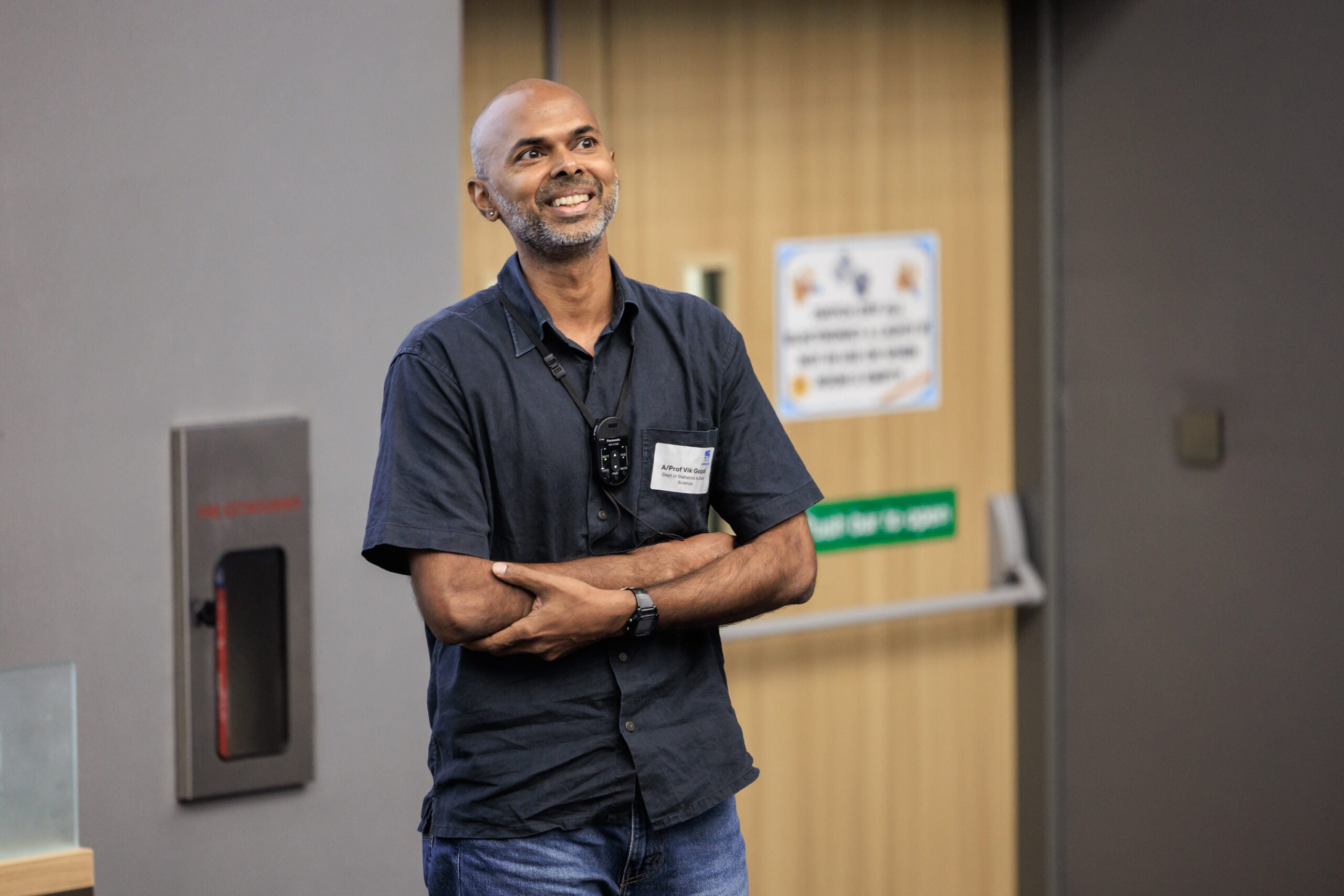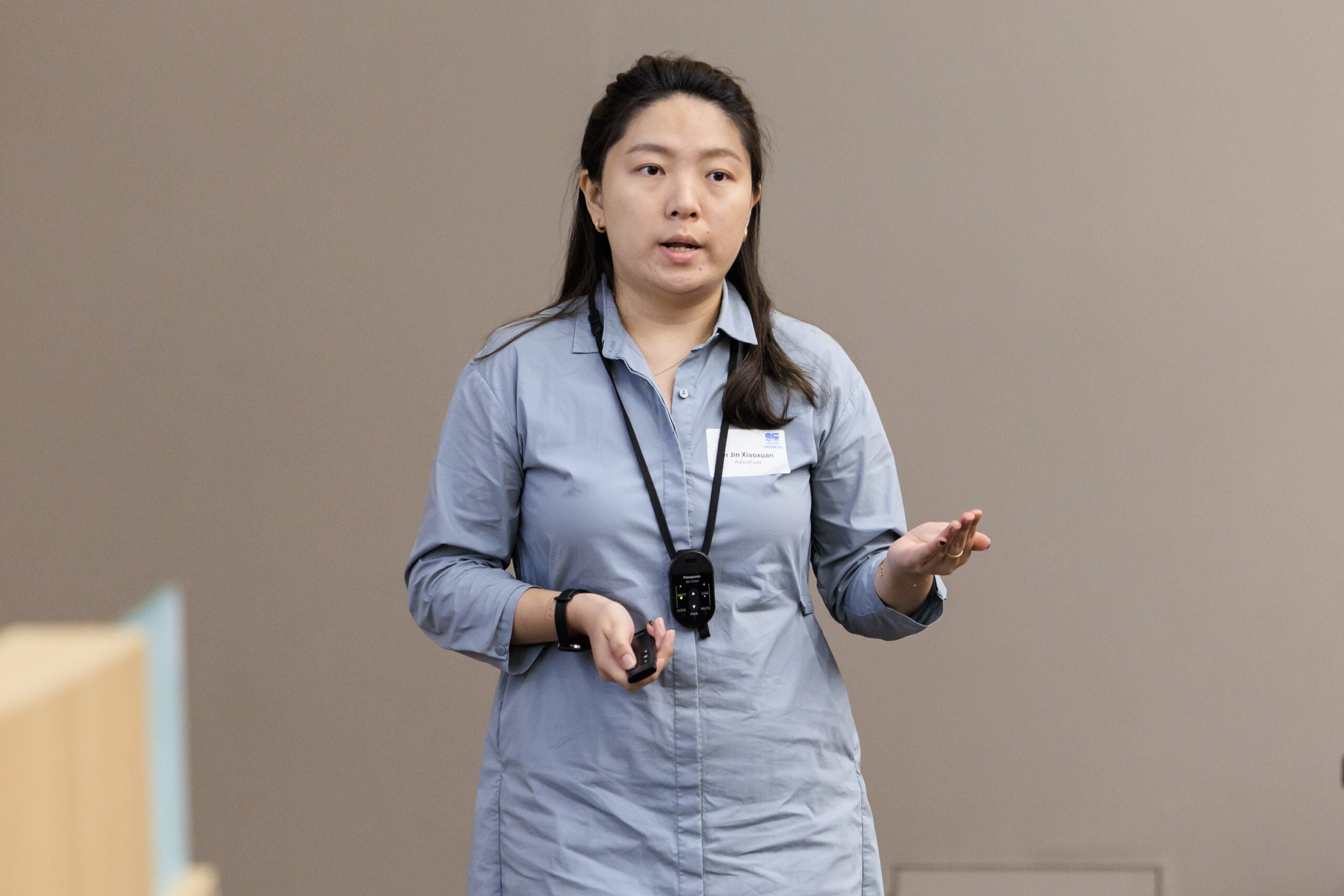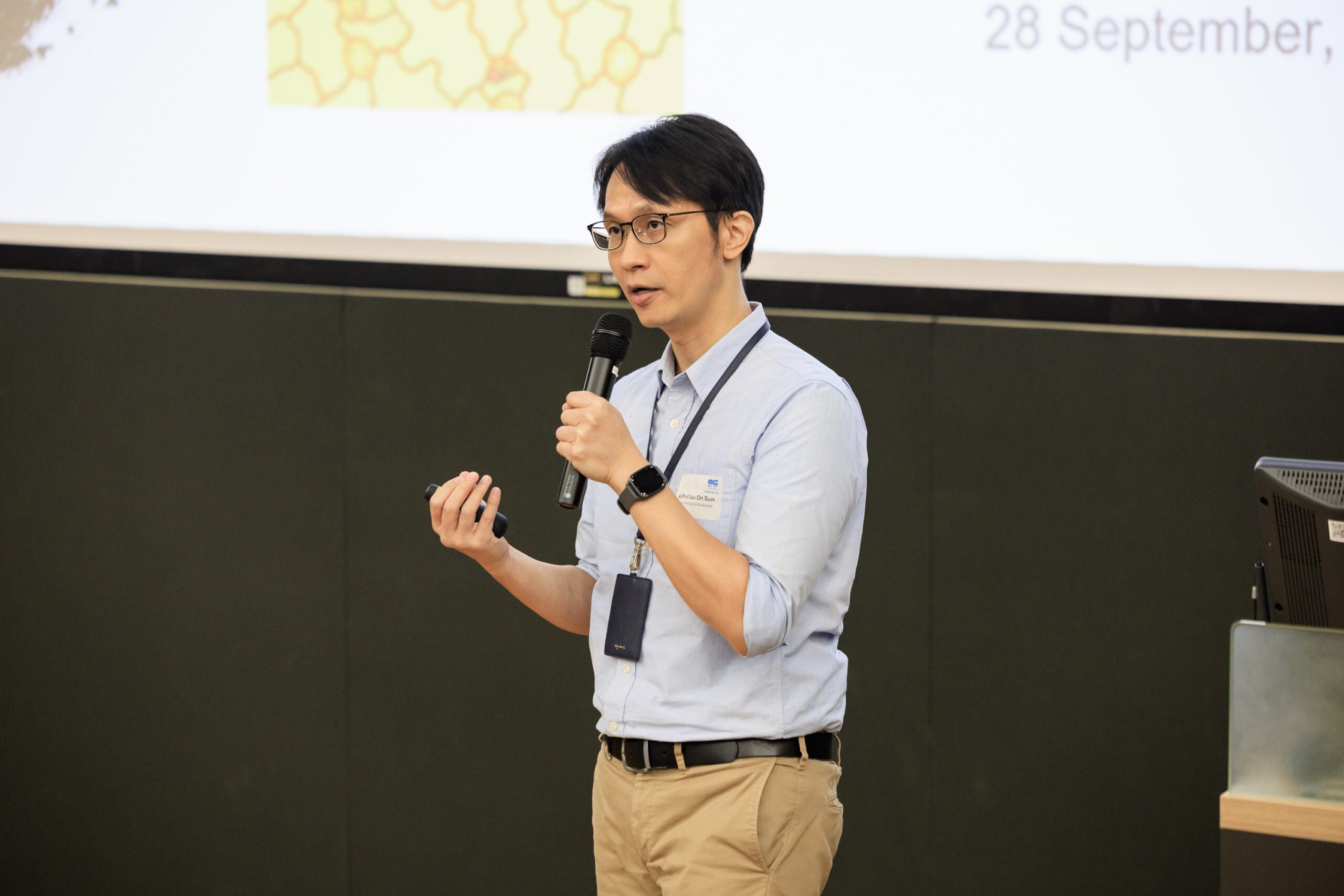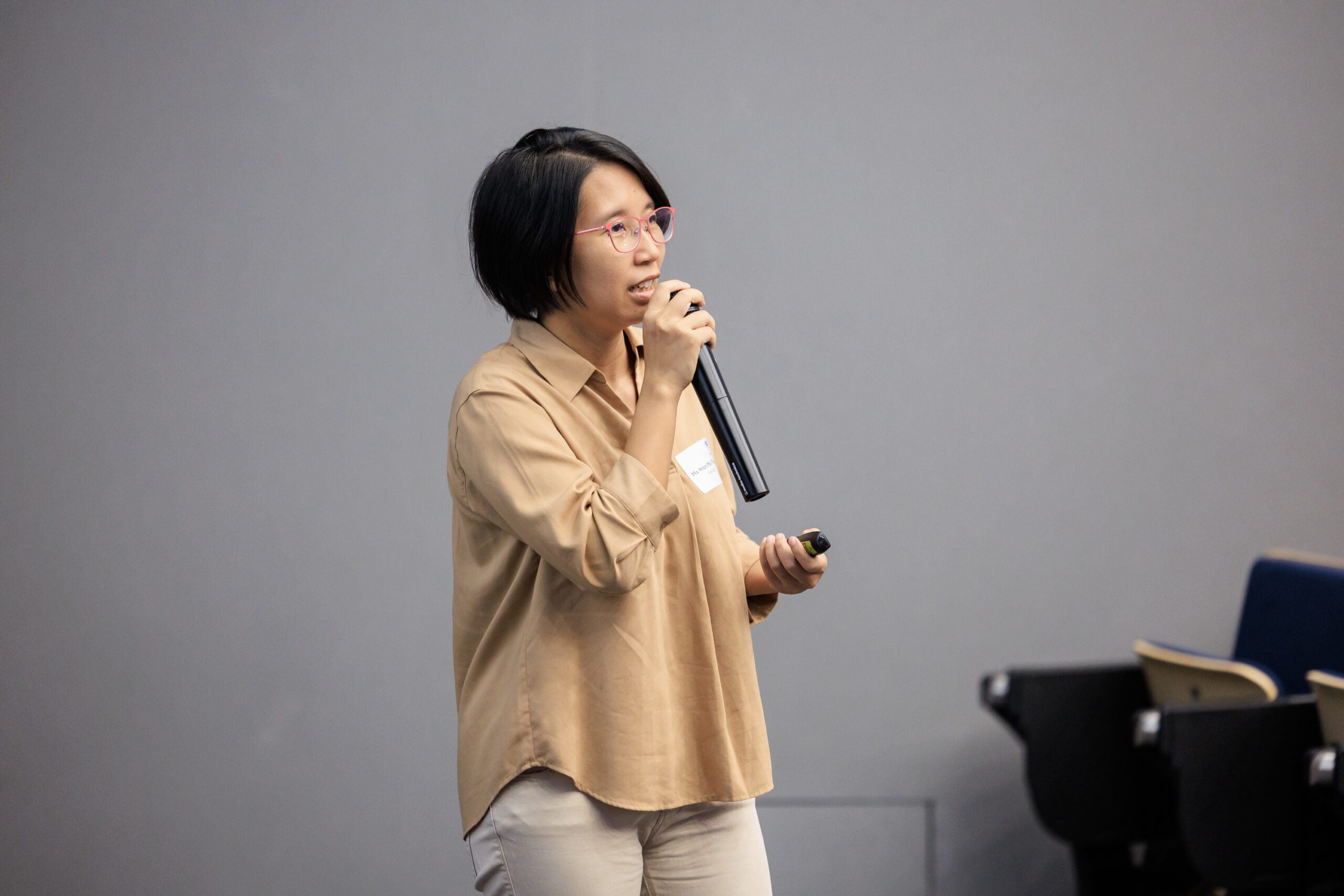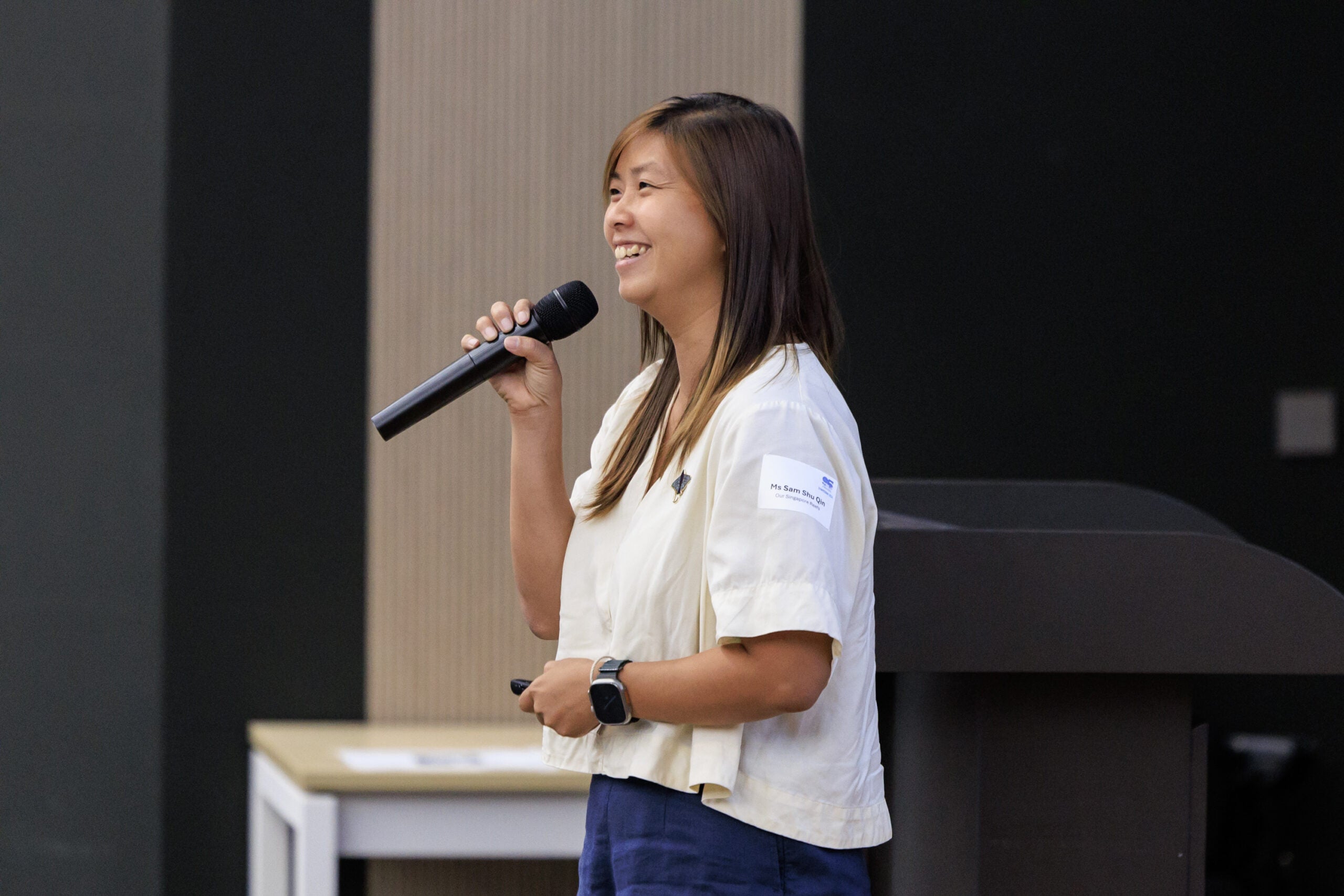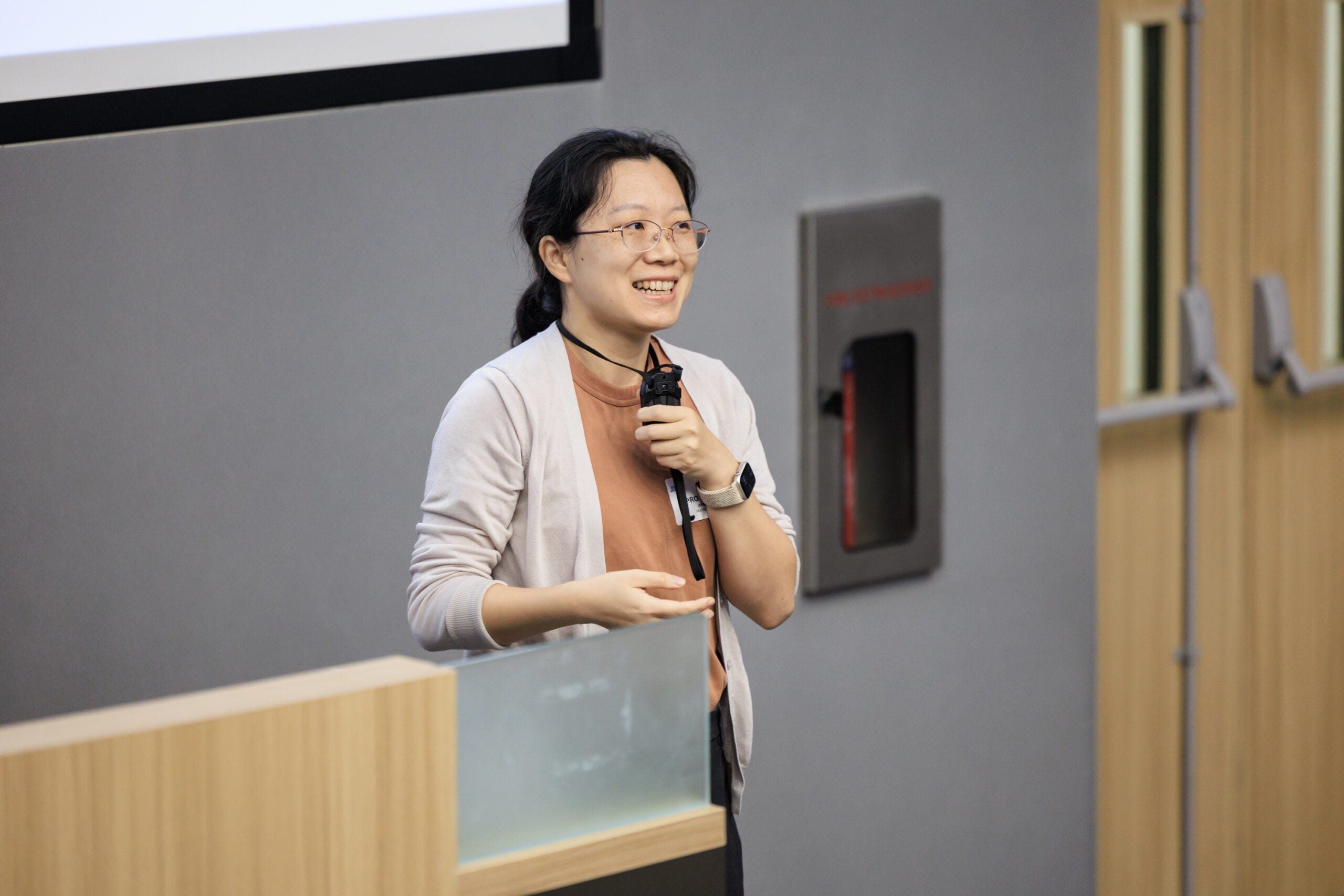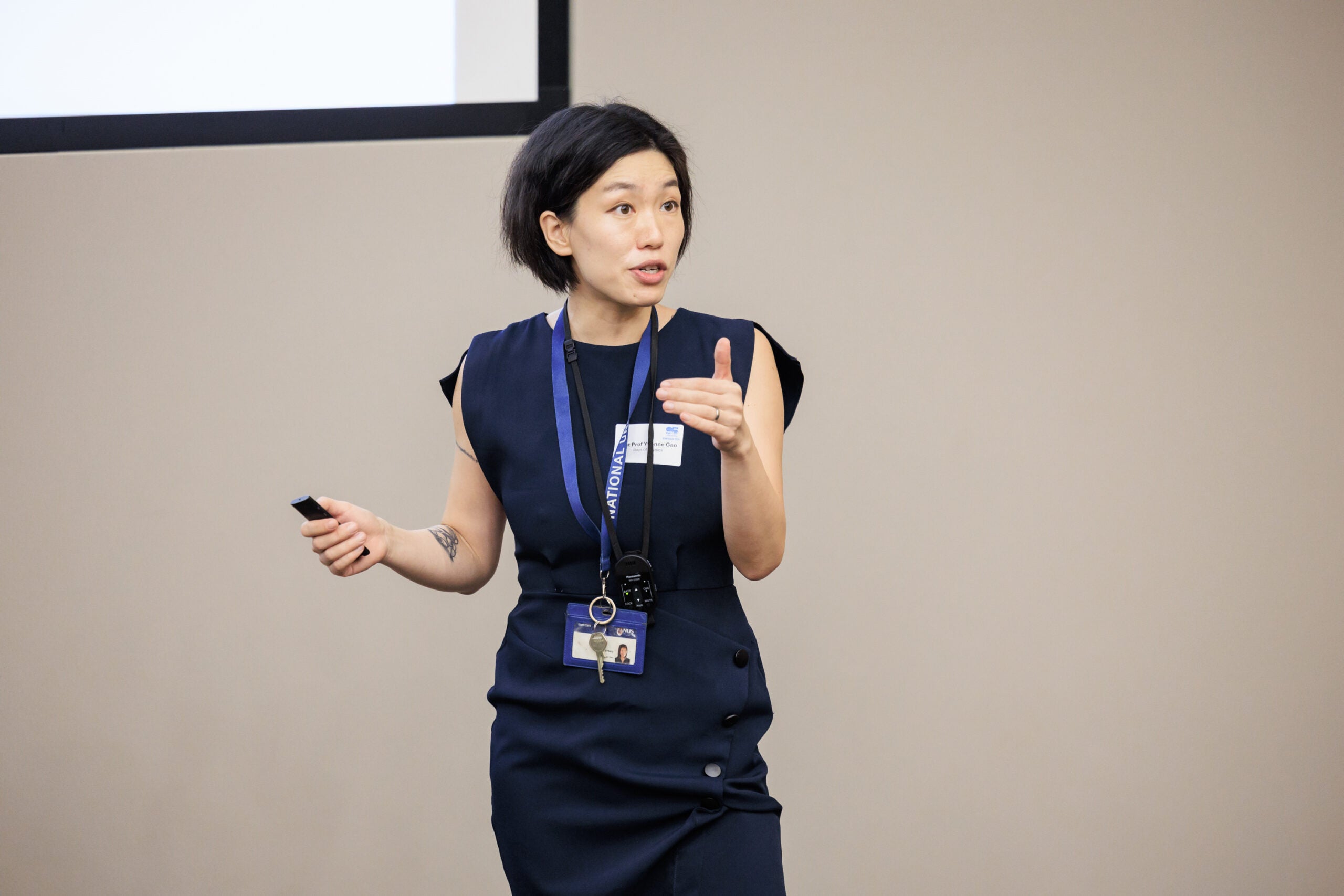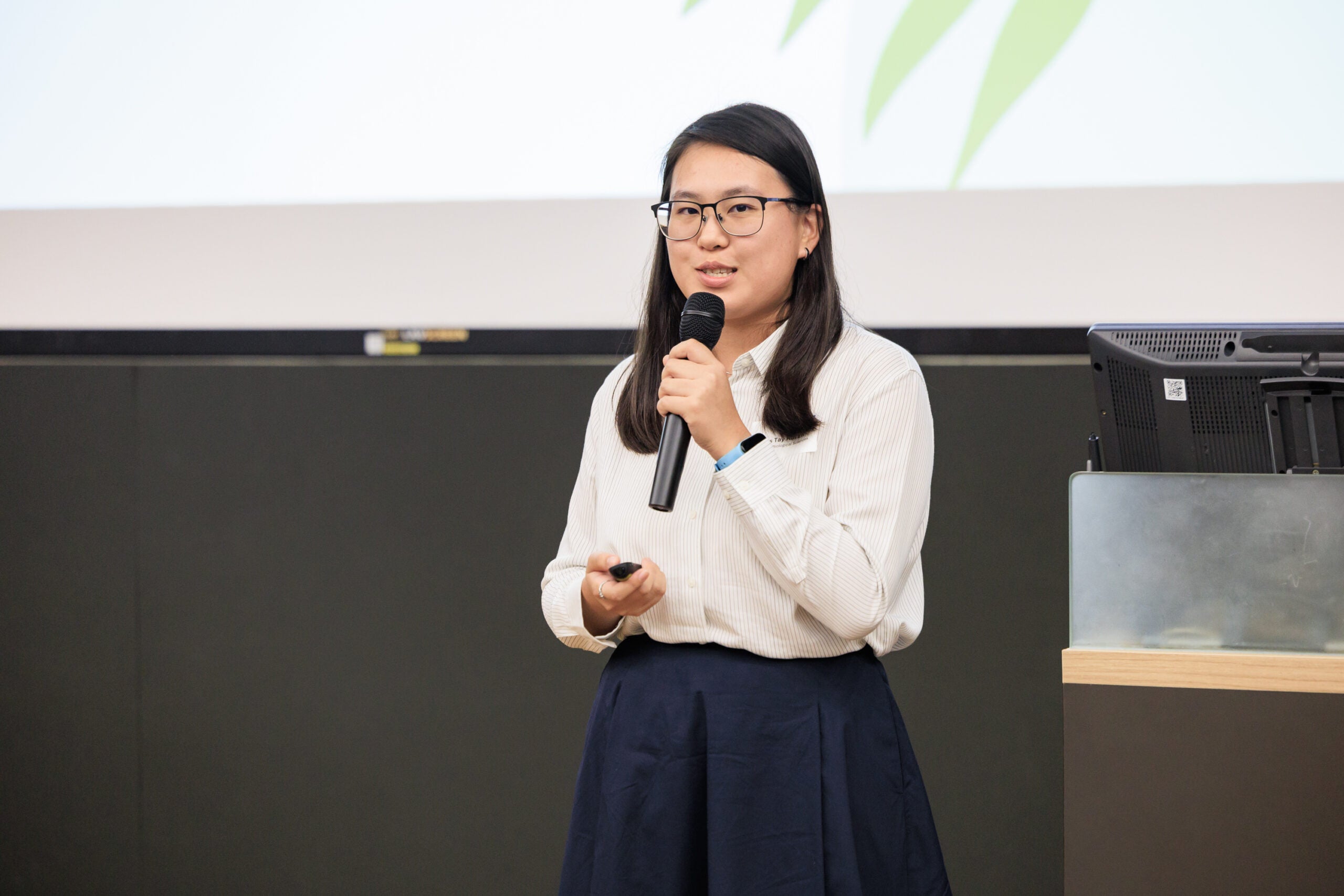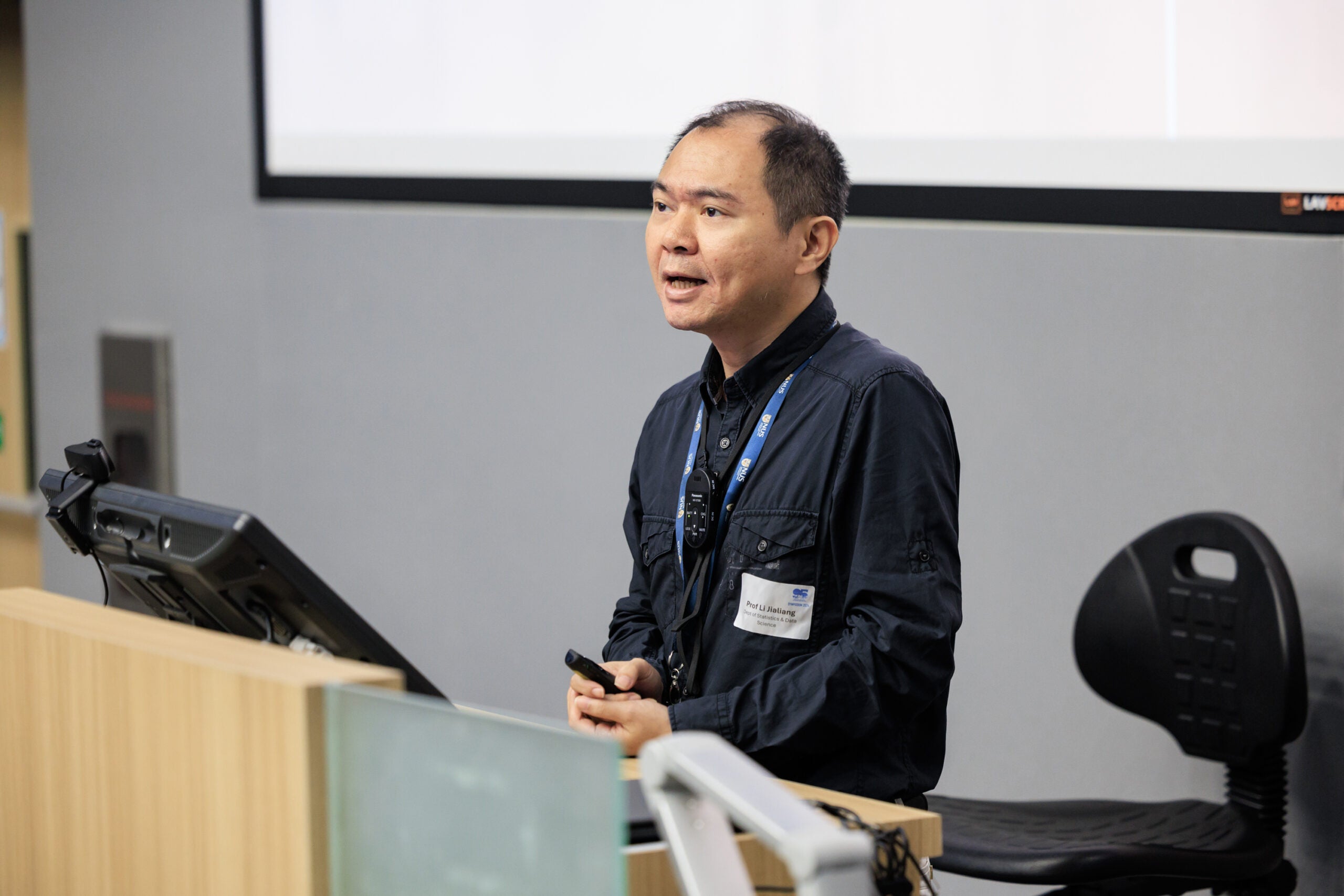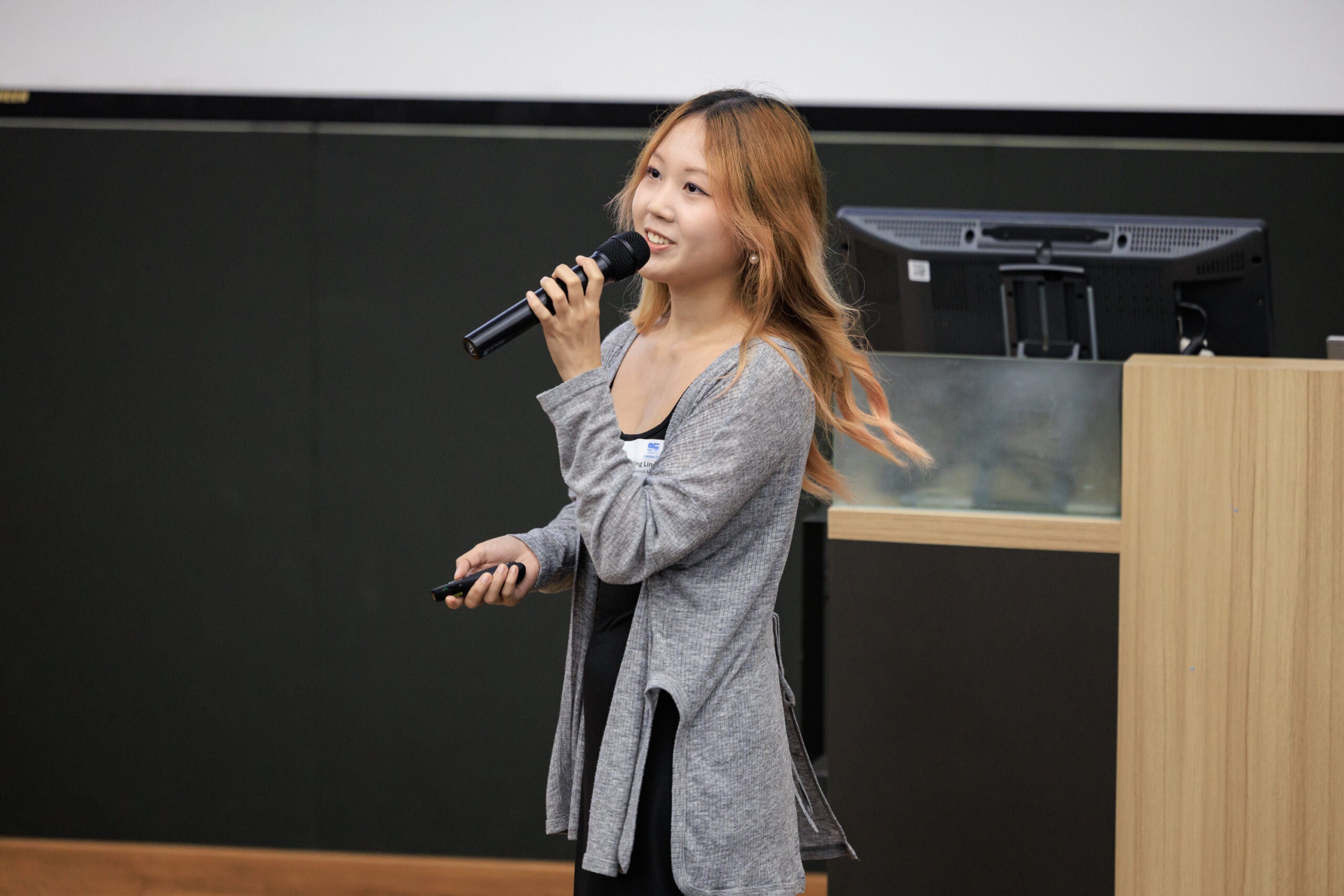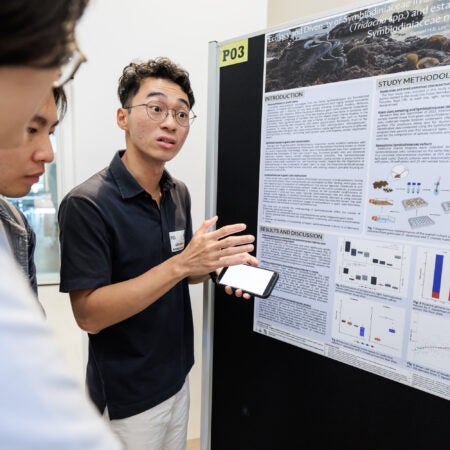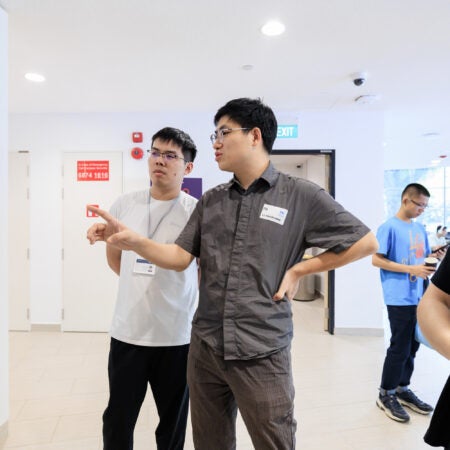Celebrating, connecting, collaborating: NUS Science Symposium 2024
October 03, 2024The wicked challenges we face today — from climate change to food insecurity and global health crises — are immense, but so too are the opportunities. How can science education, research and enterprise address such challenges?
These were some of the issues discussed at the Science Symposium held on 28 September 2024.
One of such opportunities is the fast-growing field of sustainability. In his keynote, Prof Koh Lian Pin, NUS’ Associate Vice President and Chief Sustainability Scientist, Director of NUS’ Centre for Nature-based Climate Solutions and the faculty’s Vice Dean (Research) delved into the interconnectedness of problems like climate change and biodiversity loss, and how nature-based climate solutions can conserve the ecosystem and rehabilitate degraded habitats.
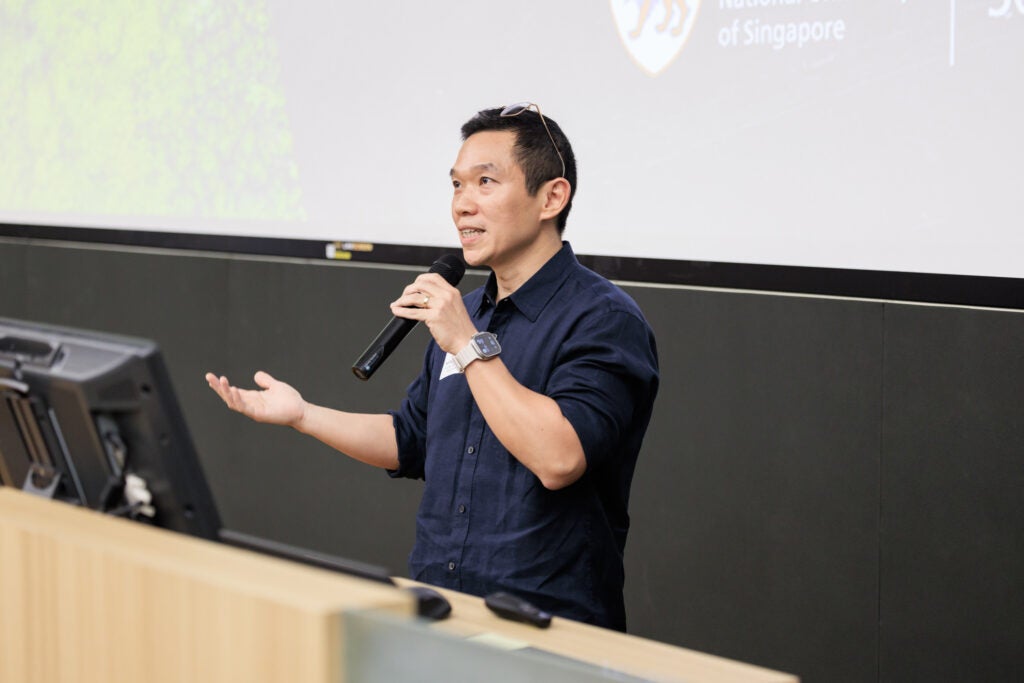
Life Sciences student Lew Bo Cong said, “I am intrigued by how research informs policymakers to create solutions that reduce carbon emissions. I gained a newfound appreciation for the diverse ways science addresses global challenges.”
In a second keynote, Assoc Prof Stella Tan, the Faculty’s Assistant Dean (Undergraduate Studies) and Associate Provost (Student Conduct), Office of the Senior Deputy President and Provost, NUS, brought the audience through the applications of Technology-Enhanced Learning (TEL), such as virtual and augmented reality, in the field of forensic science and how such immersive experiences are transforming the way we learn, teach and solve real-world problems.
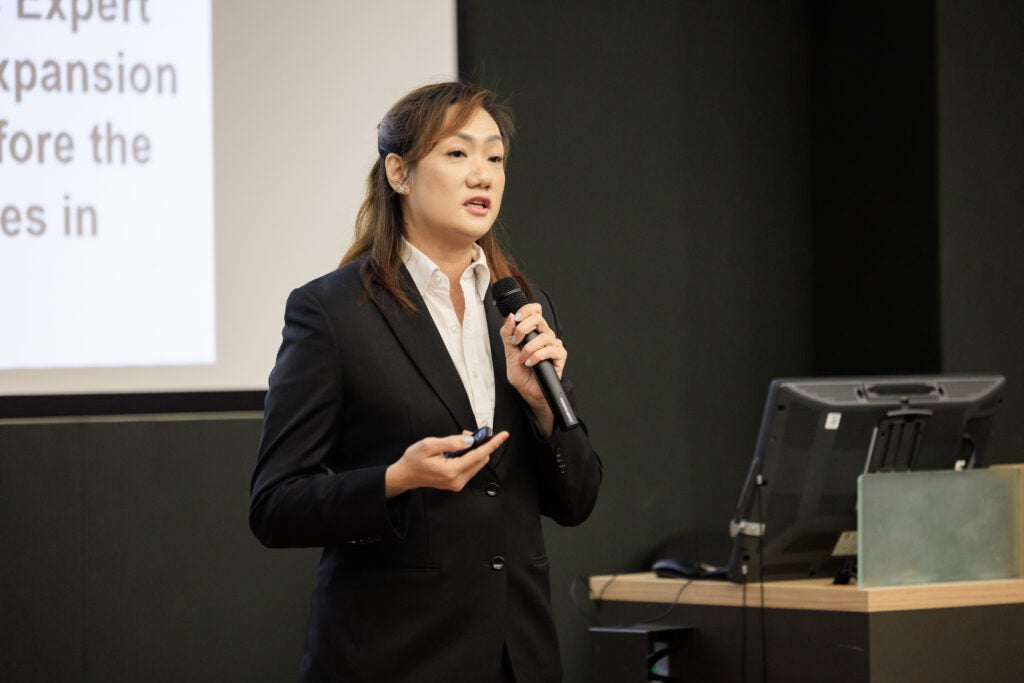
In his opening speech, Dean of Science Prof Sun Yeneng said, “The Symposium brings together a like-minded community in science to exchange ideas, ignite new conversations, and even challenge paradigms, as part of the way forward in seeking collaborative solutions to today’s challenges.”
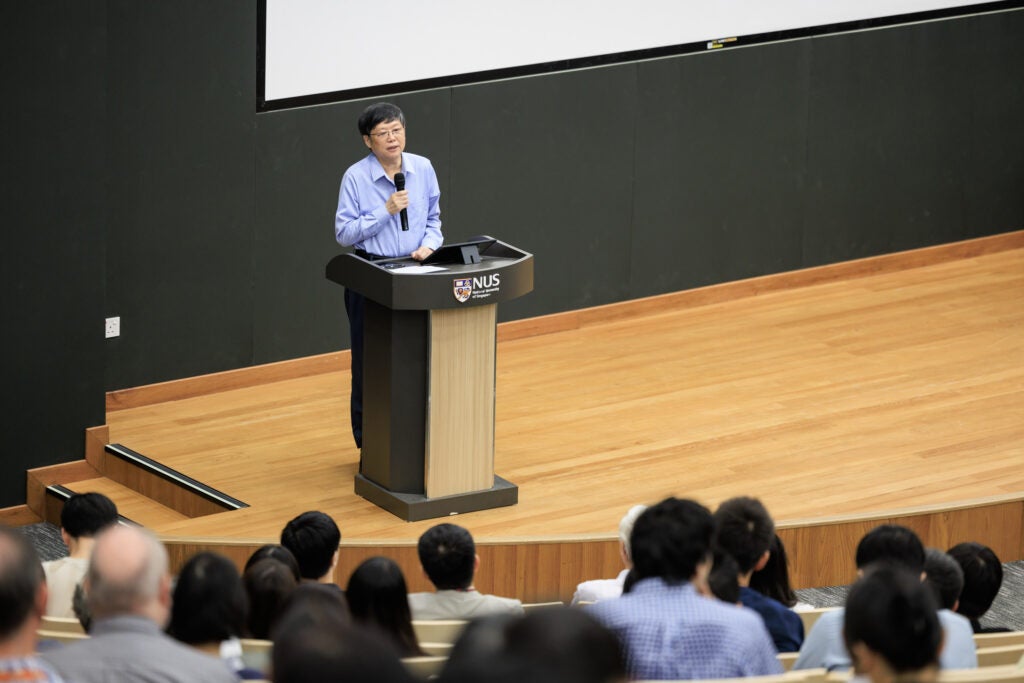
The programme lined up over 30 bite-sized talks covering topics in the life sciences, physical sciences, and mathematical sciences, many of these delivered by our award-winning scientists. Among these topics were sustainable carbohydrate synthesis, molecular insights for targeting Parkinson’s disease, new approaches for antibiotic discovery, atomic-scale science for future materials, novel pathways to address leukaemia resistance, leveraging Artificial Intelligence and quantum technologies for quantitative finance, and more.
Chemistry alumnus Dr Alaric Koh, Division Director (Forensic Science Division) and Laboratory Director, (Forensic Chemistry and Physics Laboratory), Applied Sciences Group, Health Sciences Authority (HSA), said, “I attended to learn about the latest advancements in research and teaching methodologies at my alma mater. It was a day of learning and inspiration!”
Our scientists and educators captivated the audience through thought-provoking talks
Our educators also shared their strategies for innovative teaching to improve student engagement and learning outcomes, from personalised and inclusive education to different assessment approaches, new ways for self-regulated learning through peer feedback, and more.
One of the attendees, Applied Mathematics alumnus Dr Ved Prakash, Vice President (Quantitative Portfolio Optimisation), DBS Bank, said, “The Faculty’s focus on data science and Artificial Intelligence (AI), which are very hot areas in industry now, ensures that students remain competitive in today’s job market.”
Daring to dream
The Symposium also featured sharing sessions by NUS Science alumni who have gone on to become successful entrepreneurs.
One of them, Life Sciences alumnus Kit Yong, saw how members of his extended family in the prawn farming business suffered huge losses as a result of prawn disease. To address this, he founded Forte Biotech to bring simple and affordable diagnostics solutions to farmers in the region. On his ‘secret’ to success in enterprise, he said, “Know how to spot the right opportunities and be brave enough to jump on them!”
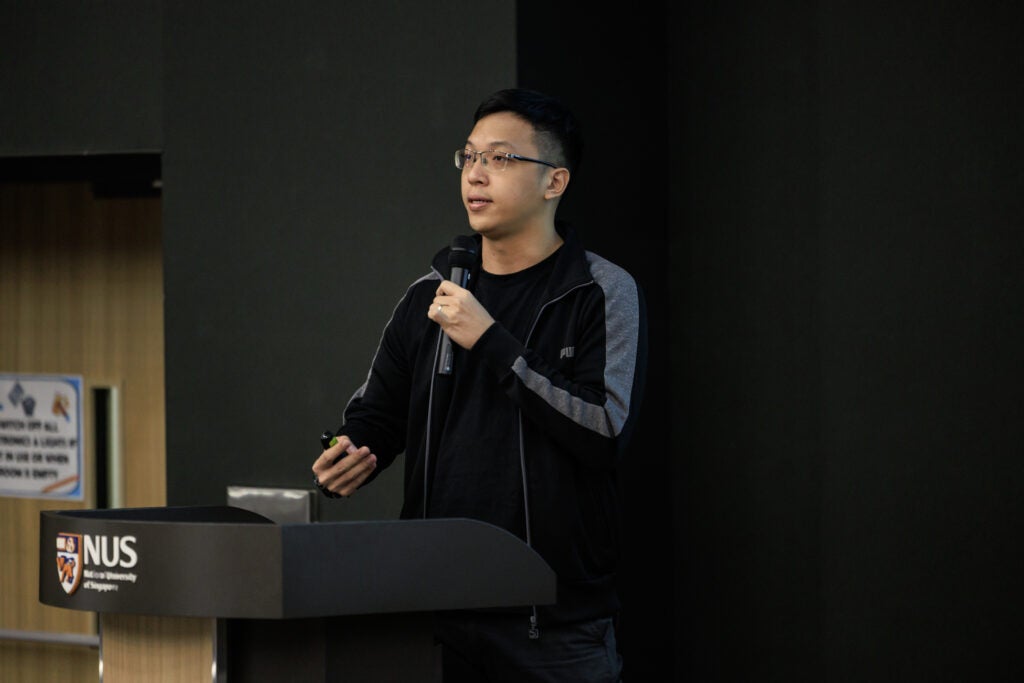
Witnessing patients lugging bags of medicines inspired Pharmacy alumnus Dr Goh Wei Jiang to co-found Craft Health. Its technology combines multiple medicines into a single polypill, each with its own distinct release profile, thereby simplifying patients’ medication regimes. “Tenacity, perseverance and understanding your strengths” are the attributes that led him through his entrepreneurial journey.
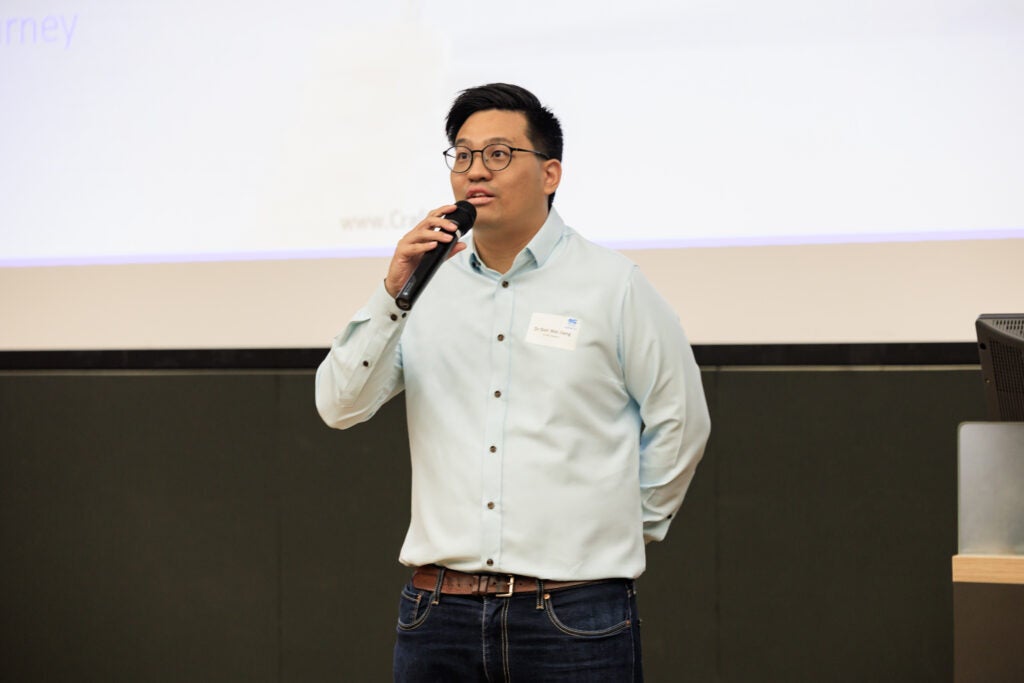
Other entrepreneurs included Food Science and Technology alumna Dr Jin Xiaoxuan whose startup offers diabetic-friendly bakes, Physics’ Lum Chune Yang whose organisation is a leader in end-to-end quantum secure connectivity services, Statistics’ Joyce Tay, who stumbled into entrepreneurship but successfully built multiple ventures, Statistics’ Hien Mai Thanh, who harnesses AI to offer nature-based management solutions, and Sam Shu Qin, who champions marine stewardship initiatives.
Making a difference on the ground
Several students, who drive initiatives that are leading to tangible social impact, also delivered inspiring talks.
Food Science and Technology student Kwok Jing Lin, whose team expanded the NUS FoodTech Challenge competition to an international scale for the first time, shared her experience in bringing students from around the world to collaborate and develop solutions to address global food industry challenges. She said, “I hope to highlight the importance of empowering young minds to innovate for a better tomorrow.”
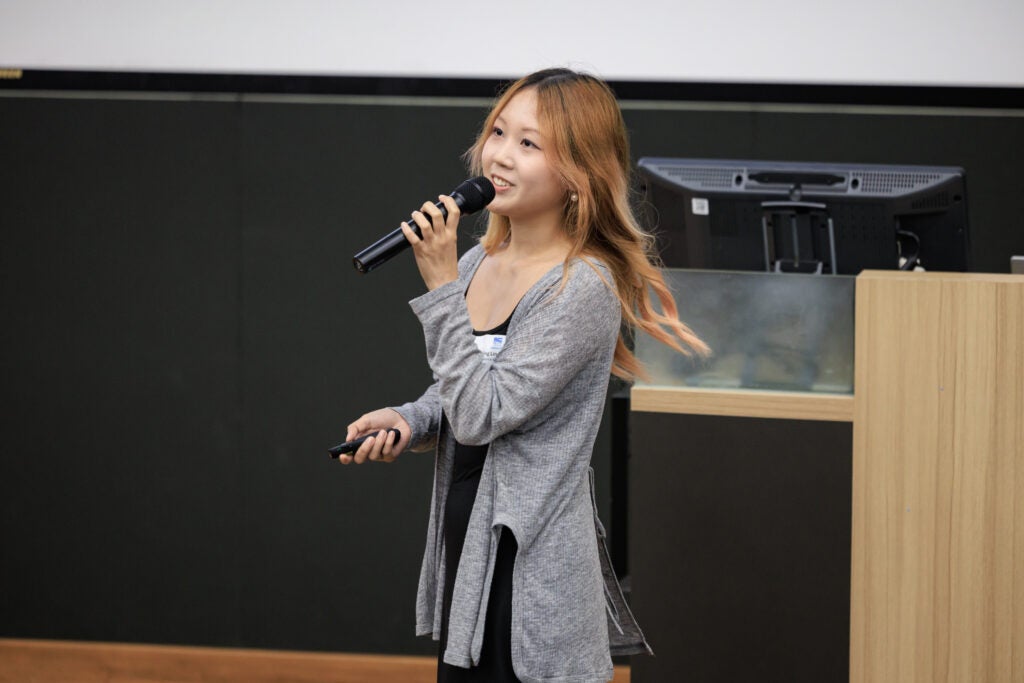
Environmental Studies’ Tay Rui En, the President of Bachelor of Environmental Studies (BES) Drongos, a nature guiding group, offered insights into its community outreach initiatives which seek to generate awareness of Singapore’s biodiversity. “I hope to encourage the public to play their part in supporting conservation,” she said.
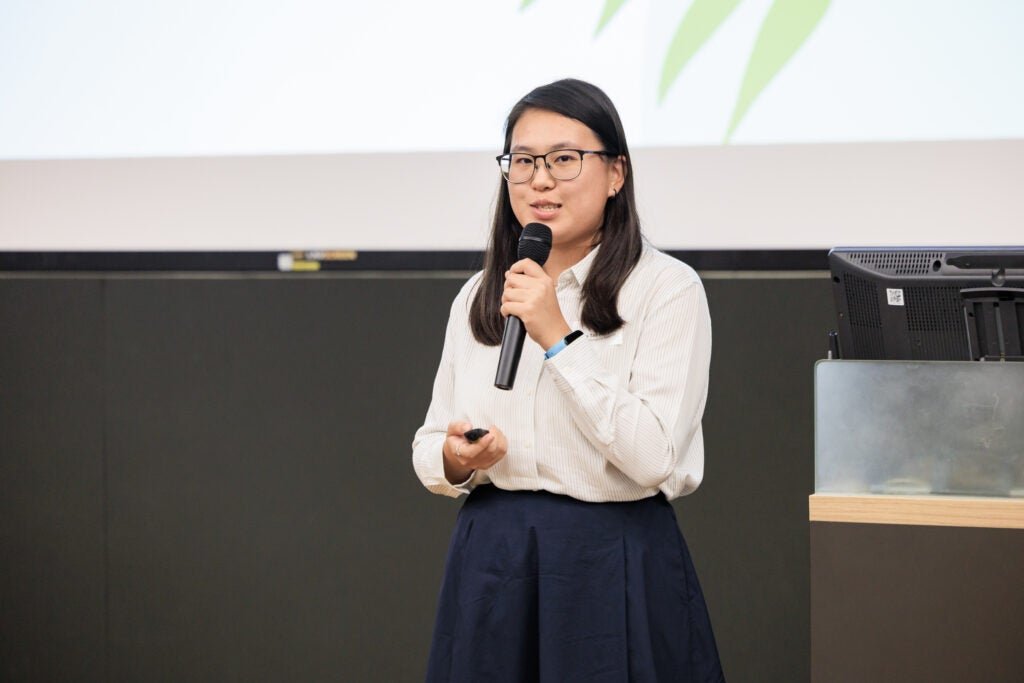
Statistics and Data Science student Sneha Kumar, ex-President of the NUS Mathematics Society, brought the audience through the society’s efforts in cultivating enthusiasm for mathematics through competitions. “Our mathematics competitions seek to spark intellectual curiosity, connect individuals through shared challenges and build a community of those who share a passion for mathematics,” she said.
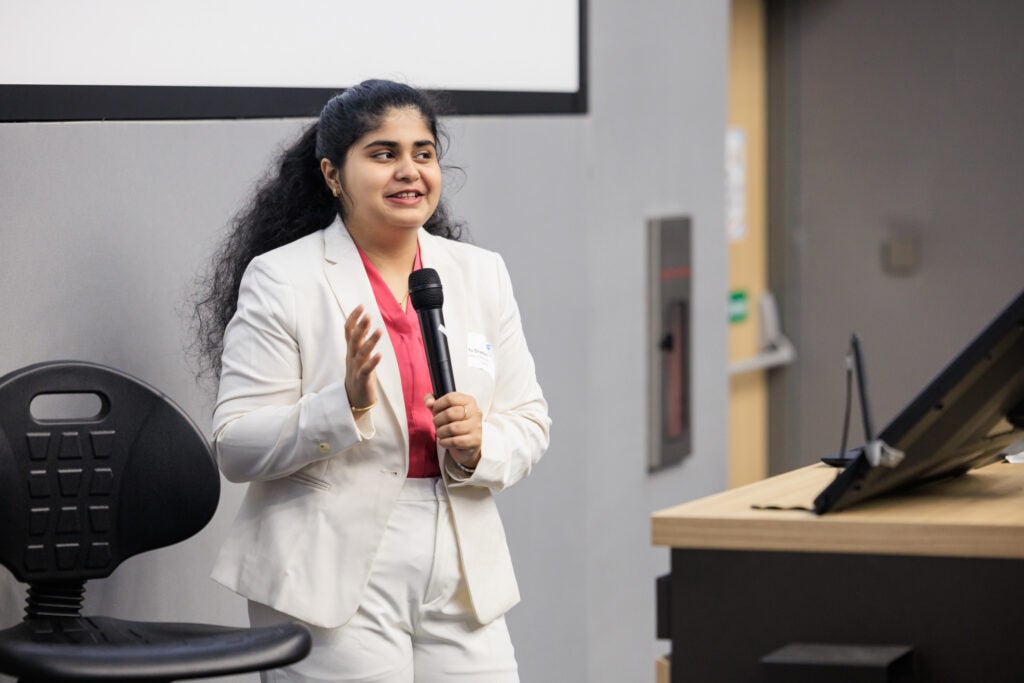
Teo Shin Rei, Department of Pharmacy and Pharmaceutical Sciences, who led a Youth Expedition Project to Kampong Chhnang, Cambodia, said, “Our team of volunteers worked with local and overseas organisations to improve community health literacy and the quality of care in rural Cambodia.”
The symposium concluded with a research poster competition featuring the work of over 50 undergraduate and postgraduate participants.
Chemistry student Li Yihan said, “By attending the presentations and reviewing the posters, I feel more prepared for my own research projects.”
Over 50 poster displays showcased research from undergraduate and postgraduate students on diverse research themes
The one-day Symposium, one of the flagship events for the Faculty of Science’s 95th Anniversary, brought together over 300 attendees, including faculty, students, alumni and staff.
Catch our photo gallery at https://www.science.nus.edu.sg/95-anniversary/#photogallery.


